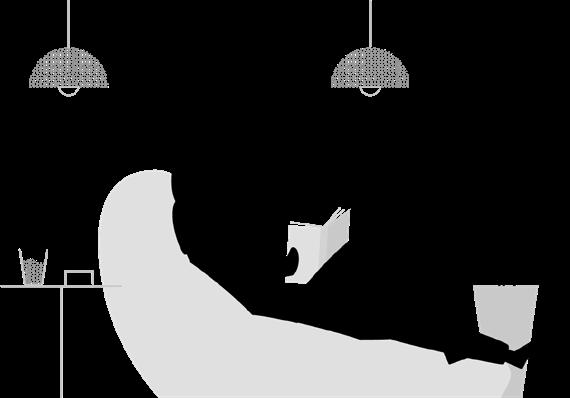READ
A showcase of SCU student work, compiled by Dr Emma Doolan
Requiem Samantha Cambray
When we understood that overpopulation was going to end us, death became more revered. We moved from investing billions into medicines and keeping elderly folk comfortable and sedated. We looked to the joyous funerals of the Balinese; the fires of Varanasi. Death returned to a focal point of life. Yesterday, my social standing lifted: such was my brother’s sacrifice. Conscripted into farm work after the collapse of industrial agriculture, he was bitten by a brown snake whilst building irrigation channels. First aid is taboo now – he died in that field in a valley once lush with rainforest. I slept poorly overnight. Did the venom in his veins make his last minutes transcendent? Did he witness his spirit moving from the earth? Or did he only writhe with pain and fear and the heat of summer?
how to talk again, talk that spans a whole afternoon. If there is an interment, everyone on the field takes their knee while family sing their loved ones into the handdug earth. My brother’s body lays on a bamboo stretcher close by me, all but his face covered in flowers, a few coins and the choicest vegetables. I crave their taste. His co-workers keep digging, their conscripted bodies stronger. Shame in my incomplete digging festers, until it reforms as the urge to grieve like in my parents’ day: in private, breath-depriving sobs bearing the reality of loss. The bond with my brother, as it stood, is forever arrested. And more threateningly: I too am mortal.
***
Our family line stops with me. They tested me when I started menstruating. My genes weren’t strong enough to avoid a governmentally prescribed hysterectomy. Few women have the genes.
I drop the shovel beside my collapsing body. My skin has stopped sweating, instead, the soft flesh of my kidneys feel arid and as tough as the soil.
I’ve heard rumours of whole communities fled to the bush, where their elderly live to old age, where they give birth to as many children as they conceive.
The funeral pyres of winter are too much a risk of wildfire, so all other deaths are buried. When the old town cemetery filled, the sports fields were opened for burials.
I don’t know if the rumours are true.
Sweaty men play cricket in their greys next to families picnicking with their dead. Children run between colourful graves, whilst as a community we remember
24 | AUTUMN 2020 northerly
Samantha Cambray is a mother of four children and lives in the lush Thora Valley of northern New South Wales. She is a Creative Writing student at Southern Cross University and is currently exploring potential cultural and sociological shifts brought about by climate change in her work, which spans both fiction and non-fiction.










